This is the final article of a third part series on fiber. This article examines if fiber is good for Irritable Bowel Syndrome (IBS) and GERD. The first article examines if fiber is good for heart health and protecting against colon cancer. The second article examines if fiber is good for constipation and lowering cholesterol.
Fiber may not be the Holy Grail of good health as it has been reported to be, but who cares? In healthy individuals, the fermentation of fiber in the large intestine is generally considered normal and healthy.
Unfortunately, that’s not the case for many people with digestive problems. Consuming too much fiber can cause excess fermentation to spill over into the small intestine leading to a condition called Small Intestinal Bacterial Overgrowth (SIBO).
The small intestine normally contains drastically fewer and different bacteria than the large intestine. SIBO occurs when bacteria from the large intestine invade and multiply in the small intestine. There is a growing list of digestive conditions linked to SIBO including Gastroesophageal Reflux Disease (GERD) and irritable bowel syndrome (IBS). Not surprisingly, SIBO symptoms can include abdominal pain, bloating, distention, gas, acid reflux, cramps, diarrhea or constipation and even malnutrition.
Irritable Bowle Syndrom (IBS), SIBO and Fiber
Dr. Mark Pimentel and colleagues at Cedars-Sinai Medical Center in Los Angeles, CA, as well as Dr. John Hunter’s group at Addenbrooke’s Hospital NHS Trust, Cambridge, UK, have both published on the link between IBS, abnormal fermentation and SIBO. Hunter’s group linked fiber with abnormal gut fermentation and determined that a fiber-free diet could significantly reduce symptoms and intestinal gas[1].
Pimentel’s team determined that 78 percent of IBS patients had SIBO as indicated by a positive hydrogen breath test, an indirect measure or abnormal fermentation in the small intestine[2]. Similar results were achieved in children[3]. While some researchers achieved conflicting results[4], a meta-analysis of numerous studies validated the use of hydrogen breath testing for SIBO in IBS diagnostics[5]. The most definitive results to date linking SIBO to IBS is a study of 320 subjects where 42 out of 62 people (67.7%) confirmed to have SIBO by direct bacterial culture method also had IBS[6].
GERD, SIBO and Fiber
There is a growing body of evidence that gastroesophageal reflux disease (GERD) is also caused by SIBO that includes the following:
- Reflux symptoms can be controlled by inhibiting gut bacteria with antibiotics[7],[8],[9] or carbohydrate restriction[10],[11].
- GERD is associated with other conditions linked to SIBO such as IBS[12] and cystic fibrosis[13],[14],[15].
- Intestinal gas and acid reflux can be induced with the prebiotic fructose oligosaccharide, which is indigestible by humans but fermentable by bacteria[16].
- SIBO has actually been detected in GERD patients, and the symptoms improved after antibiotic treatment[17].
Less is More
Fiber and often other hard-to-digest carbohydrates such as lactose, fructose, resistant starch and sugar alcohols comprise a unique type of food, and digesting it depends on cooperation between our bodies and our resident intestinal bacteria. While fiber consumption helps maintain our healthy gut bacteria, less is more.
Native or “good” bacteria have adapted to survival in the highly competitive environment of our gut by occupying unique niches based on their highly specialized abilities to break down and utilize a wide variety of fiber types.
A nutrient-limited environment (less fiber) helps rid our body of bad or pathogenic bacteria, such as C diff, because they are less able to compete when the going gets tough. A good analogy is leaving a few pieces of bread or bird seed in your back yard for the birds. If you overdue it, you can end up with rats. Clearly the health benefits of consuming large amounts of fiber are overstated and need to be balanced with the risk of digestive problems that can be caused or exacerbated by excess fiber.
Solution for GERD, IBS and SIBO
There are so many different kinds of fiber in so many different foods. It can be difficult to link digestive symptoms with any specific type of fiber. My advice would be to enjoy plenty of leafy green vegetables that contain less fermentable types of fiber. Nuts, seeds and berries are also good as long as you do not over do it. Be sure to limit legumes such as beans and lentils or avoid them all together if your symptoms are severe.
Controlling not only fiber but also other hard-to-digest carbohydrates in your diet will ensure that your gut microbes compete for the benefit of co-existing with you without overgrowing in the small intestine and producing symptom-causing gas. And the Fast Tract Diet gives you the means to do exactly that.
The Fast Tract Diet systematically measures how much of your food is feeding symptom-causing / gas-producing bacteria in your gut and gives you in “FP” points to control it. FP stands for Fermentation Potential. It’s a mathematical formula that gives you the points to create healthy balance in your gut. But don’t worry. The math is already done for you.
To learn more, read the Fast Tract Digestion Heartburn or IBS books and get the Fast Tract Diet mobile app. And join the Fast Tract Diet Discussion Group on Facebook for support, inspiration and discussion.
Need individualized help? Call us at (844) 495-1151 (US) to make an appointment.
Feel Better, Live long, Enjoy Life.
Read Part I and Part II on fiber.
[1] Dear KL, Elia M, Hunter JO. Do interventions which reduce colonic bacterial fermentation improve symptoms of irritable bowel syndrome? Dig Dis Sci. 2005 Apr;50(4):758-66.
[2] Pimentel M, Chow EJ, Lin HC. Eradication of small intestinal bacterial overgrowth reduces symptoms of irritable bowel syndrome. Am J Gastroenterol. 2000;95:3503-6.
[3] Scarpellini E, Giorgio V, Gabrielli M, Lauritano EC, Pantanella A, Fundarò C, Gasbarrini A. Prevalence of small intestinal bacterial overgrowth in children with irritable bowel syndrome: a case-control study. J Pediatr. 2009 Sep;155(3):416-20.
[4] Bratten JR, Spanier J, Jones MP. Lactulose breath testing does not discriminate patients with irritable bowel syndrome from healthy controls. Am J Gastroenterol. 2008 Apr;103(4):958-63.
[5] Shah ED, Basseri RJ, Chong K, Pimentel M. Abnormal breath testing in IBS: a meta-analysis. Dig Dis Sci. 2010 Sep;55(9):2441-9.
[6] Pyleris E, Giamarellos-Bourboulis EJ, Tzivras D, Koussoulas V, Barbatzas C, Pimentel M. The prevalence of overgrowth by aerobic bacteria in the small intestine by small bowel culture: relationship with irritable bowel syndrome. Dig Dis Sci. 2012 May;57(5):1321-9. Epub 2012 Jan 20.
[7] Pennathur A, Tran A, Cioppi M, Fayad J, Sieren GL, Little AG. Erythromycin strengthens the defective lower esophageal sphincter in patients with gastroesophageal reflux disease. Am J Surg. 1994 Jan;167(1):169-173.
[8] Pehl C, Pfeiffer A, Wendl B, Stellwag B, Kaess H. Effect of erythromycin on postprandial gastroesophageal reflux in reflux esophagitis. Dis Esophagus. 1997 Jan;10(1):34-37.
[9] Mertens V, Blondeau K, Pauwels A, Farre R, Vanaudenaerde B, Vos R, Verleden G, Van Raemdonck DE, Dupont LJ, Sifrim D. Azithromycin reduces gastroesophageal reflux and aspiration in lung transplant recipients. Dig Dis Sci. 2009 May;54(5):972-9.
[10] Yancy WS Jr, Provenzale D, Westman EC. Improvement of gastroesophageal reflux disease after initiation of a low-carbohydrate diet: five brief cased reports. Altern Ther health med. 2001. Nov-Dec; 7(6):120,116-119.
[11] Austin GL, Thiny MT, Westman EC, Yancy WS Jr, Shaheen NJ. A very low-carbohydrate diet improves gastroesophageal reflux and its symptoms. Dig Dis Sci. 2006 Aug;51(8):1307-12.
[12] Nastaskin I, Mehdikhani E, Conklin J, Park S, Pimentel M. Studying the overlap between IBS and GERD: a systematic review of the literature. Dig Dis Sci. 2006. Dec;51(12):2113-20.
[13] Ledson MJ, Tran J, Walshaw MJ. Prevalence and mechanisms of gastro-oesophageal reflux in adult cystic fibrosis patients. J R Soc Med. 1998 Jan;91(1):7-9.
[14] Vic P, Tassin E, Turck D, Gottrand F, Launay V, Farriaux JP. Frequency of gastroesophageal reflux in infants and in young children with cystic fibrosis. Arch Pediatr. 1995 Aug;2(8):742-6.
[15] Fridge JL, Conrad C, Gerson L, Castillo RO, Cox K. Risk factors for small bowel bacterial overgrowth in cystic fibrosis. J Pediatr Gastroenterol Nutr. 2007 Feb;44(2):212-8.
[16] Piche T, des Varannes SB, Sacher-Huvelin S, Holst JJ, Cuber JC, Galmiche JP. Colonic fermentation influences lower esophageal sphincter function in gastroesophageal reflux disease. Gastroenterology. 2003 Apr;124(4):894-902.
[17] Lombardo L, Foti M, Ruggia O, Chiecchio A. Increased incidence of small intestinal bacterial overgrowth during proton pump inhibitor therapy. Clin Gastroenterol Hepatol. 2010 Jun;8(6):504-8.
Please share your comments and questions!
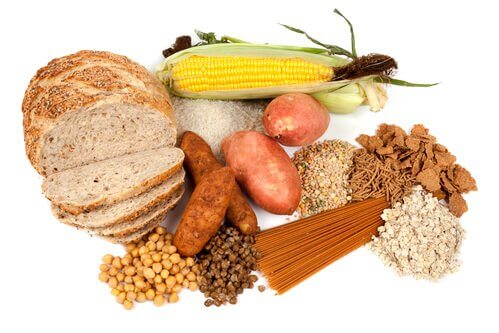

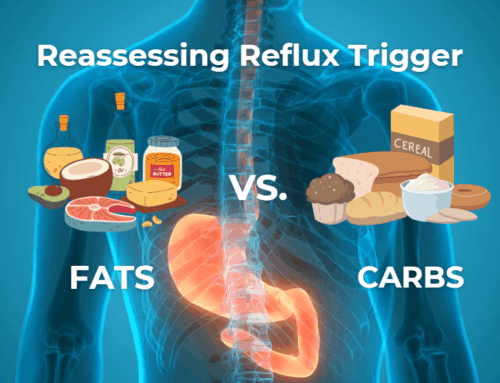
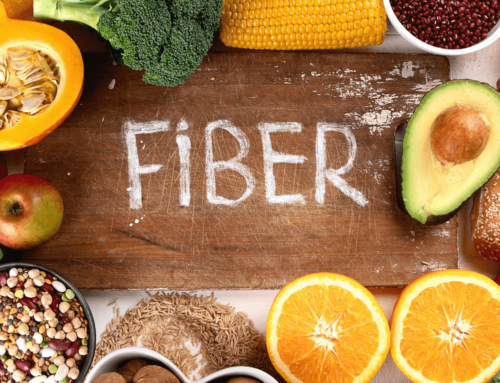
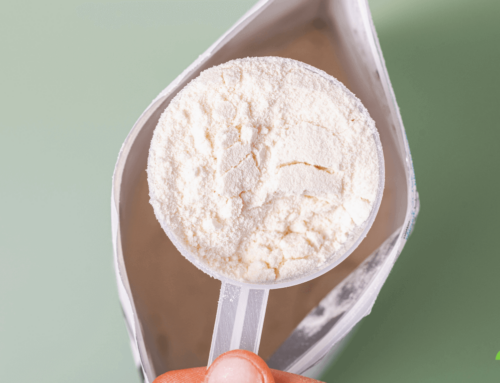

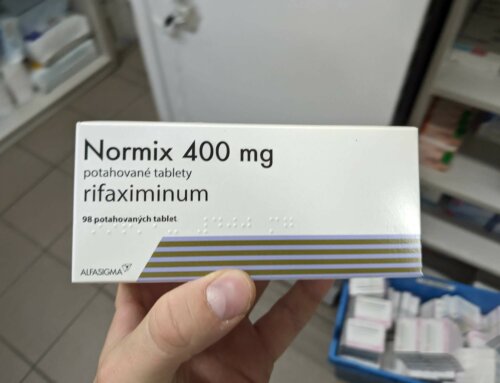
In addition to following the guidelines that you suggested in Fast Tract Digestion, I recently used magnesium citrate, a laxative, and felt great improvement in my reflux and pressure in the lower abdomen. I’ve been told to start taking fiber (psyllium husk) supplements as well as prunes in order to prevent constipation, but after reading Fast Tract Digestion, I’m not so sure that I’d like to start taking additional fiber or sorbitol. Would you suggest taking laxatives or simply continuing to follow the guidelines in the Fast Tract diet? I was quite surprised when I learned that the products supposed to promote regularity and act as “probiotics” were the same products that potentially cause more bloating and reflux. Why is this?
I can see where a short term gain might follow laxative treatment. Laxatives of any kind tend to promote more imbalance in my opinion. Many of the so called osmotic laxatives are actually highly fermentable carbs or sugar alcohols as you note and may be causing irregularity by promoting bacterial overgrowth. I recommend a natural diet approach limiting fermentable but difficult-to-digest carbs. Laxatives and constipation meds. should not be taken except when absolutely needed. Even then, they should be used for very short term periods before they can make the problem worse or cause a dependency. Fast Tract Digestion IBS coming out early this spring covers meds vs diet for constipation and diarrhea.
Thanks for your response! I’ll be sure to keep that in mind. (By the way, for anyone reading my previous comment, I meant to use the word “prebiotics”, not “probiotics”.)
I’ve been diagnosed with lactose intolerance, and so I’ve been drinking lactose-free milk. As far as I know, lactose-free milk contains only the sugars glucose and galactose, and therefore contains no difficult-to-digest carbohydrates that would be prone to fermentation. Would it be accurate to assign lactose-free milk a FP of zero?
Good question Mr. Doe. The FP would still not be zero as cow (and human) milk contains 5-8 grams/liter of oligosaccharides. https://www.annualreviews.org/doi/abs/10.1146/annurev.nutr.20.1.699.
I have reoccurring SIBO, that was treated with xifaxin. As the Md treating me gave me no useful dietary information and I have complex regional pain syndrome from a trama I believe my medications are a ongoing reason for the return of SIBO . Do you recommend ongoing use of prokinetics in addition to your dietary plan?
Hi Ericka, Of course talk to your doctor about which medications are appropriate for you. I am not a fan of current prokinetics because they either have potentially serious side effects or in the case of erythomycin type prokinetics, have unproven effectiveness. I would recommend trying the Fast Tract Diet without any other drugs first.
I apologize if you have addressed this somewhere else in your blog. I have read your books and believe you steered me in the direction I need to get well. Thank you. However, I have some questions that I can’t answer.
The result from my SIBO test was negative. However, I find that if I stay away from carbohydrates, in general, I do not get heartburn; not from coffee, wine, tomato sauce or spicy food or anything the doctors tell me I should get heartburn from. If I do somehow get some carbohydrate that I can’t digest, typically in restaurant food — maybe an unknown spice ingredient or something else – HCL with Pepsin seems to eliminate any heartburn, almost immediately.
I have a hiatal hernia and when I had my gallbladder removed at the age of 22 (I’m now 55), they discovered that I have a pseudocholinesterase deficiency. I am trying to find out the answer to questions which may or may not be related.
1. does a pseudocholinesterase deficiency affect the production of amylase for digestion?
2. why does HCL with Pepsin help take away heartburn from, seemingly, carbohydrates?
3. is there a way to take enough amylase enzyme to digest carbohydrates?
I have tried looking on the Internet, but don’t understand much of what is published because it is in technical terms. Any help you can give would be appreciated. Many thanks.
Hi Sandy,
Thanks for reading the books. As you know, pseudocholinesterase deficiency is an inability to produce pseudocholinesterase enzyme which breaks down certain drugs making you more sensitive to them. I would have to dig deeper to see if there was any connection to amylase or any other aspect of digestion. As for HCL and Pepsin helping, that is not that surprising as loss of stomach acidity is one of the contributing factors I discuss in Fast Tract Digestion. There are difference causes, but supplementing as you have done can help if you have low stomach acid levels. Undigested proteins may contribute to bacterial fermentation and lower stomach acid can promote the growth of acid intolerant bacteria, and inhibit production or function of carbohydrate digesting enzymes in the small intestine – optimized for a certain pH (acidity level). A negative finding of SIBO may indicate that SIBO is transient as your body is always trying to control it, but if undigested food is in excess, it may be continuing to occur periodically. Taking additional amylase may help some, but keep in mind that amylase only helps with starch digestion, not the digestion of other carbs. If you want my help digging deeper into these issues, please see our consultation tab.
May I just check…..is quinoa a gut friendy food?
is heavy/light cream ok for lactose intolerant people?
Hi Sarah,
Though I can’t trace the glycemic index of quinoa to it’s original source, the quinoa.net site lists quinoa as having a GI of 35. If that is the case, a quarter cup of quinoa (dry) would have 28 grams net carbs and 3 grams of fiber. That would give an FP of about 18 grams. You can always try it and see how you feel – while controlling FP for other foods in your diet. If you do try it let us know what you find.
Light/heavy cream is generally well tolerated in limited amounts for people with mild lactose intolerance because it actually contains much less lactose than milk. Otherwise, avoidance is advisable unless taking a lactase supplement.
Hi there, I am suffering from acid reflux and eosophagities, as well as constipation and excessive gas which I suspect is SIBO. I am only 18 and i dont know why i’m sufferring from this and i dont know what’s the underlying cause.. Will be seeing another GI doctor soon but in the meantime, I am trying this diet and would like to get some help. It is not possible to eliminate all carbs from my diet because when I’ll be in school and it will be hard.. what kinds of carbs is allowed? And it is okay if I eat corn bread or corn cereals and maybe white noodles but maybe only limit myself to just one meal of that? And for fruits, I like to eat apples pears and papaya! I’ve read they have some form of sugar and might result in fermentation so I have to limit them too? Sorry for the questions as I’m new here, and greatly appreciate your help!
Oh, and does low fat plain yogurt have a low FP?
Emily, full fat greek yogurt is probably your best choice as greek has the least amount of whey where the lactose is. It is very satisfying has never caused me any weight gain. Full fat dairy is the WAY to GO!! :)
Hi! Thanks for these great articles. I’ve ordered you book on Amazon and plan to implement the diet before considering medications. Personally I don’t have any gastrointestinal symptoms. I lost my voice and went to the doctor with looking for a voice coach or speech therapist. The doctor diagnosed me with LPR and prescribed me proton pump inhibitors, acid-blockers, and prokinitics, but the he also perscribed benzodiazepines. Is that unusual? I live in Taiwan, so they sometimes do things differently here, but I thought that was pretty strange. I read that “benzos” can actually increase reflux, and are also a poor treatment for sleep apnea. Anyway, I’m not taking them. I was just curious if this is also a common treatment in the west.
Hi Erik, Welcome to the site. Yes, these treatments are even bigger in the West. As you will observe when you read the book, I’m not a big fan.
Are there any fibres that don’t ferment? Which would you say are necessities if i where to isolate those in my diet and exclude the rest?
Also i have read a bit into oligosaccharides which are all fermentable but also have other bacterial regulatory uses. Are those uses therefore redundant?
Thank you in advance.
Dear Norm Robllard,
My daughter was diagnosed with SIBO /constipation
If probiotics and fibers are forbidden – how the constipation will be treated ?
I have a great deal of problem with my stomach and the Doctor seems not know what to do.
I like the plan food not meds .
I’ve been diagnosed with SIBO through hydrogen breathing test. Following FODMAPS has helped, but having success with cold sweet potatoes once a day. Why? Because cold sweet potatoes are a category 3, Resistant Starch. It helps to build up butyrate, a short-chain fatty acid, in the gut. And agree, too much wheat fiber not good if you have IBS-D and SIBO.
Interesting Linda, This pair of articles is focused on RS and does note some similar experiences. Others have had the opposite reaction, but I can’t knock what’s working for you.